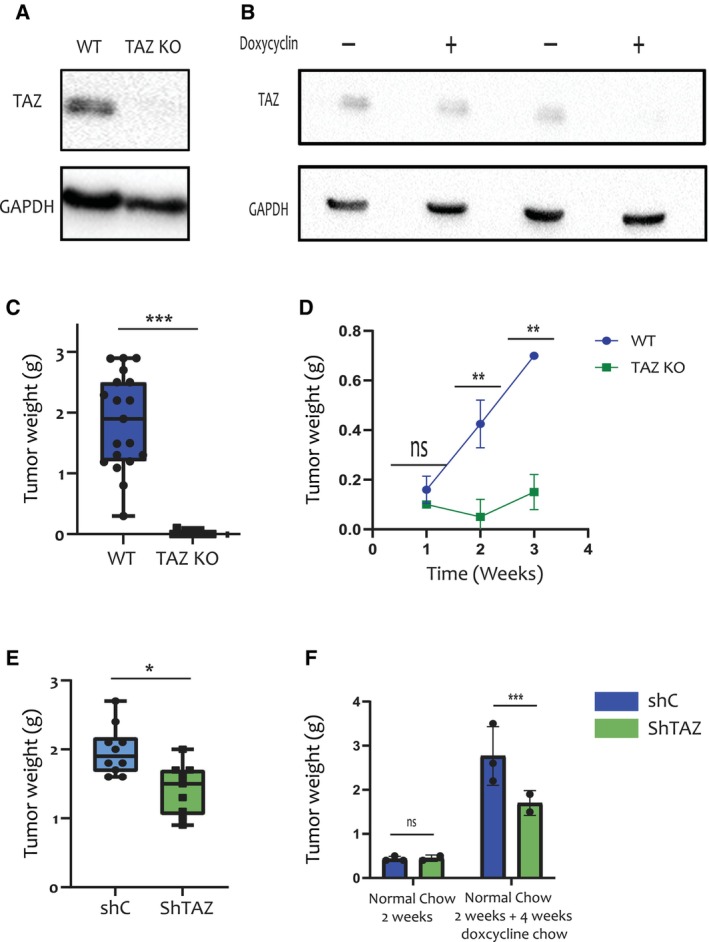Fig. 1.

TAZ is required for optimal growth of 4T1‐derived mammary tumours. (A) Western blot analysis of TAZ (Cell Signaling, Catalog #4883) and GAPDH proteins in representative WT and TAZ‐KO 4T1 single cell clones (n = 3). (B) Western blot analysis of TAZ and GAPDH proteins in control shRNA (shC) and shTAZ 4T1 cell pools (n = 3), harvested after 48 h with or without doxycycline (6 μm). (C) WT and TAZ‐KO 4T1 cells (0.25 × 106) were orthotopically injected into the mammary fat pads of BALB/c mice. Tumours were excised and weighed 6 weeks later. TAZ‐KO tumours were undetectable. Cumulative data from 17 mice injected with either of 3 WT clones and 12 mice injected with either of 2 TAZ‐KO clones. Error bars indicate mean ± SEM from all repeats. ***P < 0.001, Unpaired T‐test. (D) WT and TAZ‐KO 4T1 cells (1 clone of each, 0.25 × 106) were injected as in (C). Tumours were harvested at the indicated time points and weighed. Numbers of mice were: 1 week, 5 WT and 2 TAZ‐KO mice; 2 weeks: 4 WT and 2 TAZ‐KO mice; 3 weeks: 3 WT and 2 TAZ‐KO mice. Error bars indicate mean ± SEM from all repeats. **P < 0.01, Unpaired T‐test. (E) 4T1 cells harbouring inducible shRNA, either shC or shTAZ, were treated in vitro for 48 h with 6 μm doxycycline, and 0.25 × 106 cells were orthotopically injected into the mammary fat pads of BALB/c mice pre‐fed for 2 weeks with doxycycline chow (625 mg·kg−1). Mice were maintained on doxycycline chow for 6 weeks, after which tumours were excised and weighed. Data was compiled from 9 shTAZ and 10 shC mice. Error bars indicate mean ± SEM from all repeats. *P < 0.05, Unpaired T‐test. (F) shC and shTAZ 4T1 cells were orthotopically injected (n = 3 for ShC group and n = 2 for ShTAZ group) into BALB/c mice (0.25 × 106 cells per mouse). Mice were maintained on normal chow for 2 weeks, and then either sacrificed for tumour analysis (left) or switched to doxycycline chow for 4 more weeks (right; P‐value = 0.004). Error bars indicate mean ± SEM from all repeats. ***P < 0.001, Unpaired T‐test. KO, knockout; ShC, scrambled shRNA; ShTAZ, TAZ‐targeting shRNA; WT, wild type.
